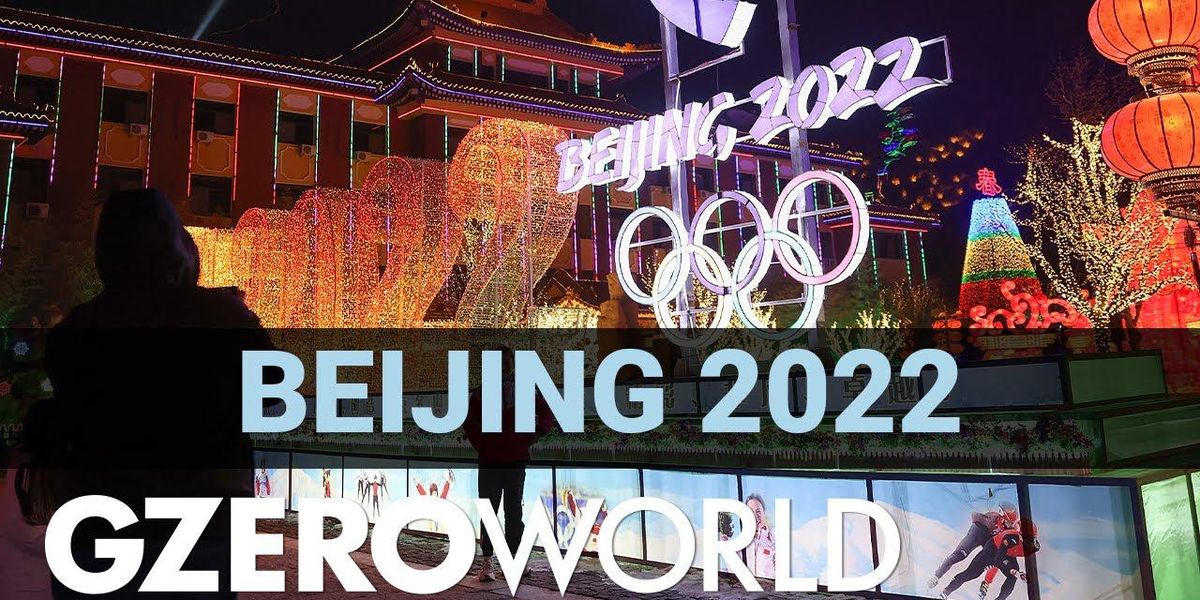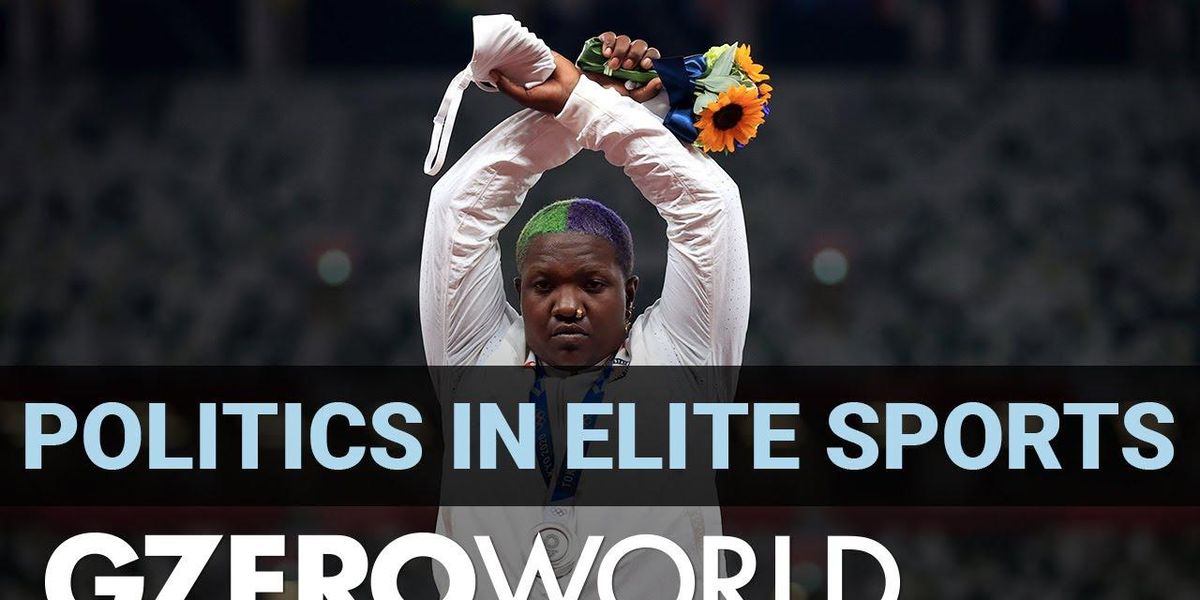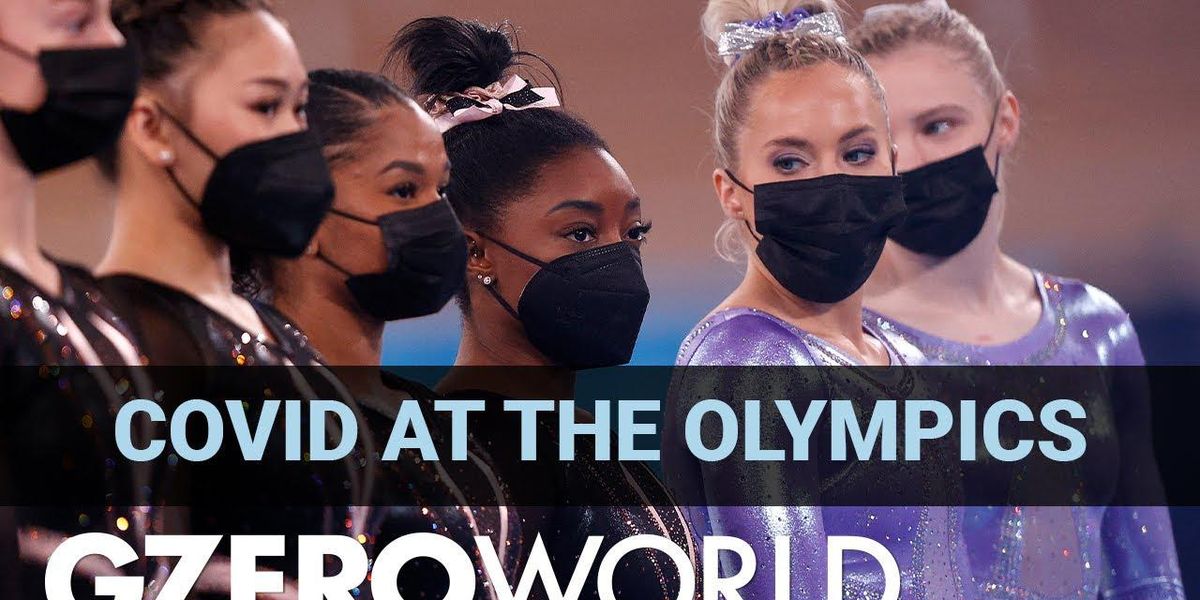Trending Now
We have updated our Privacy Policy and Terms of Use for Eurasia Group and its affiliates, including GZERO Media, to clarify the types of data we collect, how we collect it, how we use data and with whom we share data. By using our website you consent to our Terms and Conditions and Privacy Policy, including the transfer of your personal data to the United States from your country of residence, and our use of cookies described in our Cookie Policy.
{{ subpage.title }}
Would athletes be exempt from a Beijing 2022 Olympics boycott?
Will Western nations boycott next year's Beijing Winter Olympics over China's human rights abuses in Xinjiang? Probably not, says the International Olympic Committee's Dick Pound. But some countries, he anticipates, may opt to only send their athletes — like his native Canada, which has a lot of diplomatic issues with the Chinese. Pound, a former Olympian athlete himself, spoke in an interview with Ian Bremmer on GZERO World.
Watch the episode: Politics, protest & the Olympics: the IOC's Dick Pound
- Will the US and other Western countries really boycott the Beijing ... ›
- What We're Watching: US Olympic boycott threat, Myanmar junta ... ›
- How political sports boycotts (really) work - GZERO Media ›
- Should the US boycott the 2022 Beijing Olympic Games? - GZERO ... ›
- Peng Shuai, China's tennis star, appears safe but questions remain - GZERO Media ›
Politics, protest & the Olympics: the IOC’s Dick Pound
With COVID rates rising globally, this year's Olympics faced some major hurdles. But the pandemic was only part of the picture. The Tokyo Games played out against a backdrop of mounting global tension surrounding gender equality, racism and human rights, leaving many people to examine the place of politics on the playing field and podium. On GZERO World, Ian Bremmer looks at the long history of protest at the Games with Dick Pound, the longest serving member of the International Olympic Committee and a former Olympic athlete himself. Plus: the US Women's National Soccer Team is the most decorated team in the sport, but are they paid as much as their male counterparts? A look at what equal pay for equal play means.
- How political sports boycotts (really) work - GZERO Media ›
- Olympics corner: Refugees - GZERO Media ›
- Signal quiz: Olympics trivia! - GZERO Media ›
- The Graphic Truth: Olympic champs of budget overruns - GZERO ... ›
- Biden's exit overshadows Netanyahu's US visit - GZERO Media ›
- At the 2024 Paris Olympics, security fears and logistical challenges abound - GZERO Media ›
- Could the Olympics ever be free of politics? - GZERO Media ›
- Ian Explains: Why authoritarian rulers love the Olympics - GZERO Media ›
Podcast: The IOC's Dick Pound on how sports and politics should mix
Listen: On the GZERO World Podcast, a look at the long history of protest at the Games with Dick Pound, the longest serving member of the International Olympic Committee and a former Olympic athlete himself. With COVID rates rising globally, this year's Olympics faced some major hurdles. But the pandemic was only part of the picture. The Tokyo Games played out against a backdrop of mounting global tension surrounding gender equality, racism and human rights, leaving many people to examine the place of politics on the playing field and podium.
Subscribe to the GZERO World Podcast on Apple Podcasts, Spotify, Stitcher, or your preferred podcast platform, to receive new episodes as soon as they're published.Dick Pound: Olympics successful despite COVID tensions
Before the Olympics, most Japanese people were against the Games due to fear of COVID. As the tournament got on, the International Olympic Committee's Dick Pound says that most resistance vanished, but some resentment still lingers among Tokyo's residents. "There's that tension, that still exists, but it's not interfering with the sport," Pound tells Ian Bremmer on GZERO World.
Watch this episode on US public television - check local listings.
How should athletes protest at the Olympics?
For Dick Pound, the longest serving member of the International Olympic Committee, protesting at the Games is fine — as long as it doesn't "interfere" with the competition itself or awards ceremonies. The Olympics, in his view, are an oasis of calm in the middle of an increasingly tense world, and "we shouldn't be spoiling that by pointing out the obvious , which is that there are social and political problems." Watch his interview with Ian Bremmer on the latest episode of GZERO World on US public television.
- Olympics corner: Belarusian defection - GZERO Media ›
- How political sports boycotts (really) work - GZERO Media ›
- The Graphic Truth: Racial diversity in US professional sports ... ›
- Are the Tokyo Olympics cursed? - GZERO Media ›
- US women soccer team’s fight for equal pay "because we're clearly the dominant team" - GZERO Media ›



